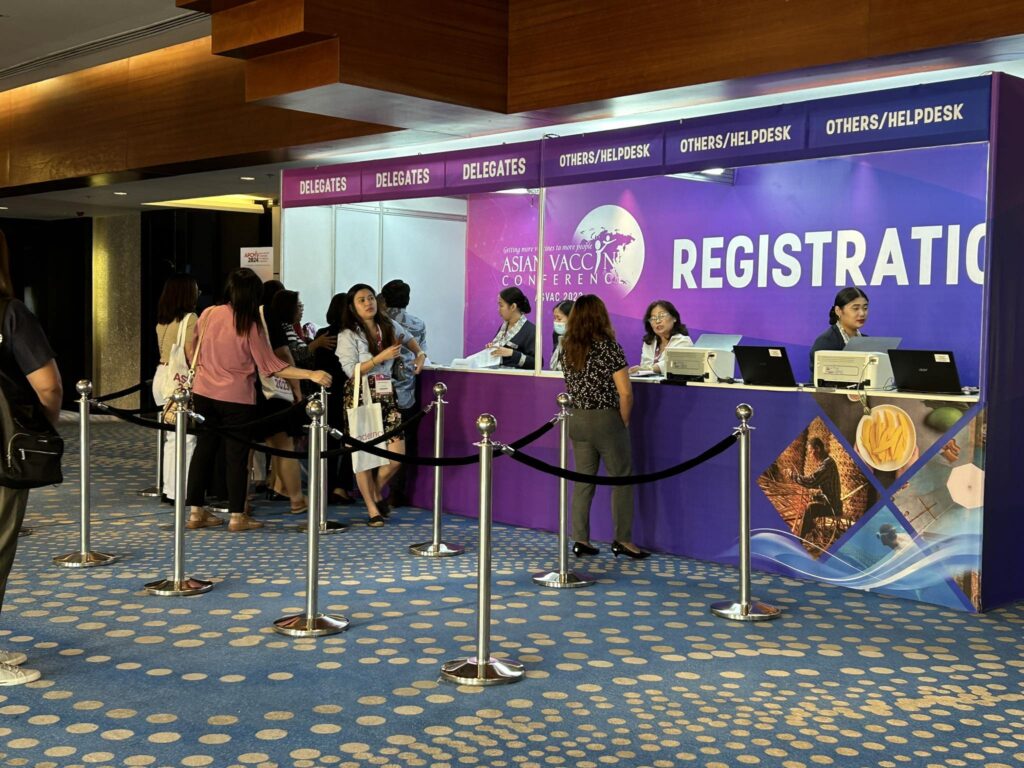HPV : Why men, women should be vaccinated against the virus that can lead to cancer

The 24th Philippine National Immunization Conference gathered delegates in Cebu on Saturday, November 11, to discuss HPV prevention and vaccination. |
CEBU CITY, Philippines – Men and women should get themselves vaccinated against human papillomavirus or HPV, a sexually transmitted disease that may cause cancer at worse or genital warts at the least.
Dr. Mitzi Marie Chua, an infectious diseases physician, made this call during 24th Philippine National Immunization Conference on Saturday, November 11, in Cebu City.
READ: Prevention is always better than cure: A Filipina mom’s experience with fighting cervical cancer
HPV ‘most common’ sexually transmitted infection
Dr. Chua , who was a keynote speaker in the conferece, defined human papillomavirus or HPV as the “most common” sexually transmitted infection globally, with more than eight in ten sexually active individuals being infected with HPV.
Chua noted that a significant number of individuals might be unaware of their infection with the virus since it often would not present noticeable signs or symptoms.
However, she said that this infection was very common among sexually active adults, even those in monogamous relationships.
READ: Cancer screening among Filipino women alarmingly low
Risk of developing cancer
Both male and female adults who have contracted an HPV-related infection face a heightened risk of developing oropharyngeal cancer (OPC) or throat cancer, and anal cancer. On the other hand, females specifically are susceptible to cervical cancer and vulvovaginal cancer as a result of this infection.
OPC or throat cancer is the predominant HPV-related cancer among males, whereas cervical cancer is prevalent among females.
READ: Cancer burden: Draining people’s lives, pockets
Be vaccinated as young as 9 years old
Furthermore, Dr. Jonathan Lim, a pediatric infectious diseases specialist, said that it would be advisable for individuals as young as nine years old to consider getting vaccinated as a preventive measure against this infection.By choosing to be vaccinated at an early age, Lim said that individuals could lower the risk of contracting the infection and experiencing its associated consequences.
For individuals aged nine to 14 years old, a two-dose regimen is recommended. The first dose is administered, followed by the second dose one month later.
However, for individuals aged 14 years and above, a three-dose regimen is advised. After the second dose, there should be a six-month interval before administering the third dose.
“This is a different kind of vaccine [HPV vaccine]. It has been shown to be safer and works better,” Lim said.
READ: Cervical cancer: What to know
Controversy over vaccines
With the controversy over vaccines during the pandemic, Dr. Jonathan Lim dismisses the controversies surrounding vaccines, referring to them as mere myths and fallacies.Labeling these concerns as unfounded, Dr. Lim emphasizes the importance of relying on factual information and scientific evidence when making decisions about vaccination.
“The truth is these vaccines would not have been placed in the market if it’s not safe because, in any medicine or vaccine, safety is the number one priority. It’s not really for profit but it’s for safety and efficacy the companies are looking for,” Lim added.
According to data from the World Health Organization, cervical cancer claimed the lives of 342,000 individuals in 2020, with a staggering 90 percent of these fatalities occurring in low- and middle-income countries, a classification our nation unfortunately falls under.
READ: DOH drive aims to curb cases of cervical cancer
Cervical cancer second most common cancer for Filipinas
Within the Philippines, cervical cancer stands as the second most common cancer affecting Filipinas. Each year, nearly 8,000 women receive a diagnosis of this disease, leading to the tragic loss of 11 mothers, sisters, daughters, and friends to cervical cancer every day.
The 24th Philippine National Immunization Conference, which started on Saturday, November 11, advocates cancer prevention through awareness and vaccination.
Aside from the informative forum, one of its objectives was the promotion of the HPV vaccine, which will be launched to the public in 2024.
Organized by the Immunization Partners in Asia in Asia Pacific (IPAP), the event highlighted the crucial role of being vaccinated for individuals of all ages and mobilized champions for immunization, particularly against HPV.
Disclaimer: The comments uploaded on this site do not necessarily represent or reflect the views of management and owner of Cebudailynews. We reserve the right to exclude comments that we deem to be inconsistent with our editorial standards.
